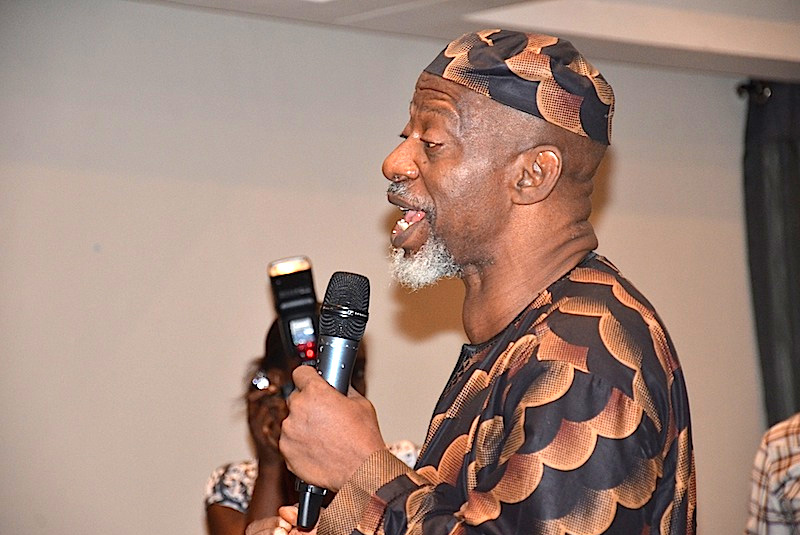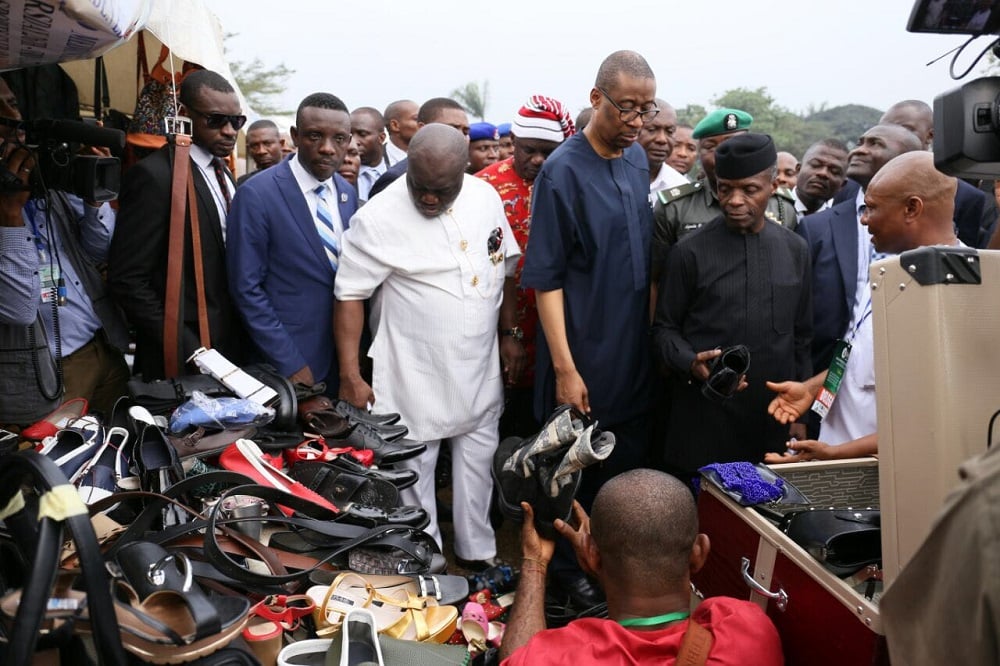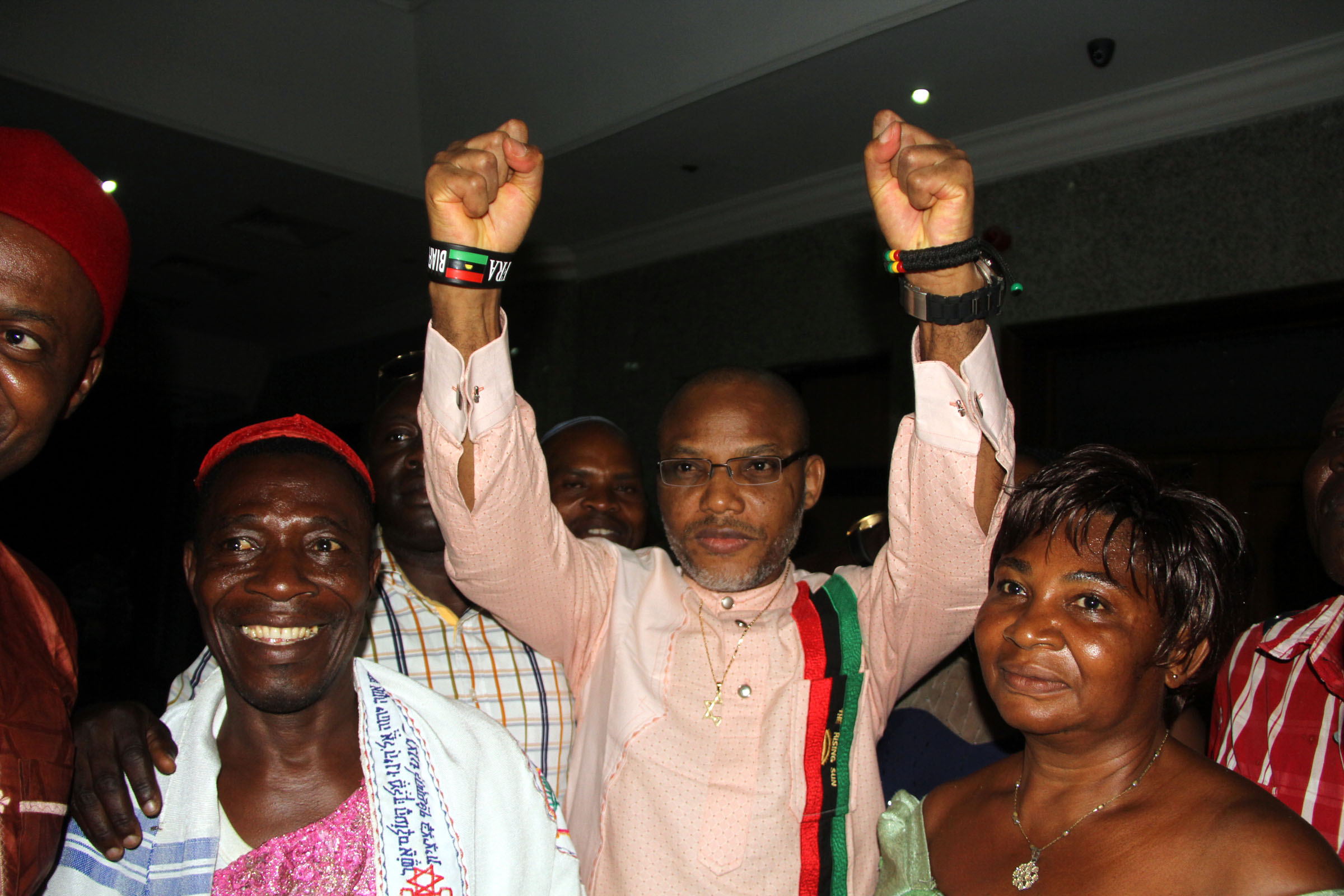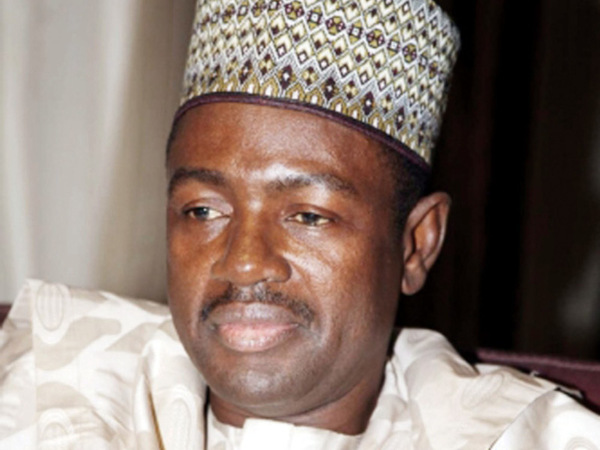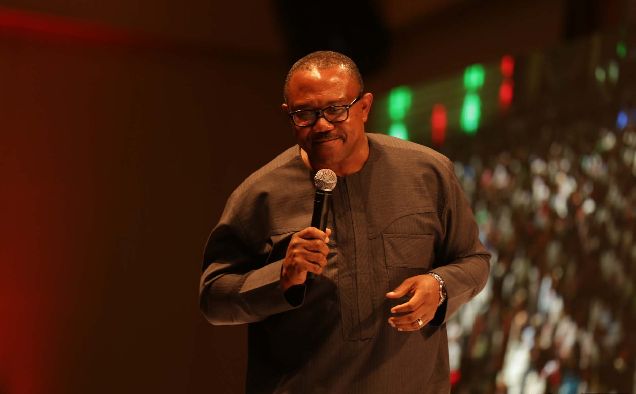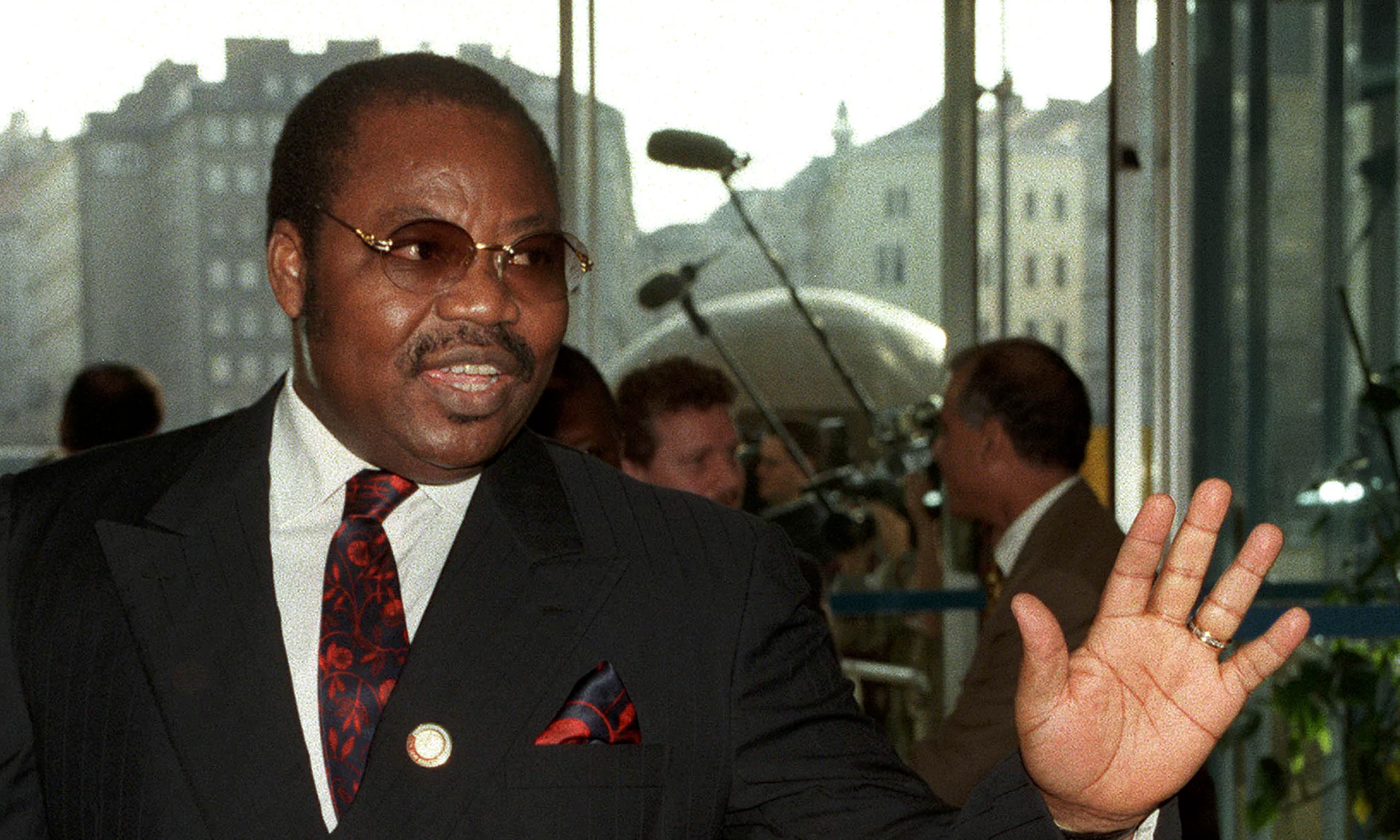BY TUNJI OLAOPA
Since I first read Odia Ofeimun’s Taking Nigeria Seriously, I have come to seriously appreciate the depth of what the poet intends to convey about the level of relationship that Nigerians have to the idea of Nigeria. In the first place, Odia Ofeimun assumes that Nigeria is an idea that we all ought to take seriously. And the weight of that assumption is stacked against the widespread angst and anger around what Nigeria has turned out to become since she gained independence fifty seven years ago. Today, Nigeria stands at a critical juncture where its citizens perceived it to have failed in its primary task of providing for the welfare of Nigerians as well as empowering them. Almost everything that could be called the dividends of democratic governance has failed, even eighteen years after the commencement of democracy in Nigeria. It would even seem that since 1999 when Nigeria commenced her democratic experiment, every indicator of democratic progress has been in gross inertia. Infrastructures have almost practically collapsed. Unemployment has also decimated the creative impulses of Nigeria’s youthful human capital. And to make matters worse, the political elite daily flaunt their corrupt enrichment in the face of the masses. One is therefore justified to retort: What is there to take seriously about Nigeria?
Almost everything that could be called the dividends of democratic governance has failed, even eighteen years after the commencement of democracy in Nigeria. It would even seem that since 1999 when Nigeria commenced her democratic experiment, every indicator of democratic progress has been in gross inertia. Infrastructures have almost practically collapsed. Unemployment has also decimated the creative impulses of Nigeria’s youthful human capital. And to make matters worse, the political elite daily flaunt their corrupt enrichment in the face of the masses. One is therefore justified to retort: What is there to take seriously about Nigeria?
But then, we come to the second inherent assumption in Ofeimun’s title—that those who ought to, have failed to take Nigeria seriously. This is, even more, indicting because this would imply asking the political elite to abandon the political behavior that has made primitive accumulation the first law of realpolitik in Nigeria since independence. Taking Nigeria seriously in this sense requires asking the politicians to commit a class suicide that insists on reinventing the way the political elite think about Nigeria and her future. This is a critical demand because it asks that the elite abandon primitive greed and begin to respond to the imperatives of the social contract between the government and the governed as well as the conditions for democratic governance which insist that the aspirations of Nigerians must be the first, second and last consideration in any political undertaking.
We can, therefore, ask: What is eminently worth taking serious about Nigeria? Odia Ofeimun has a simple but fundamental answer: Nigeria is a country that is worth salvaging. But this remains to be seen, according to him, because there have not been sufficient struggles that had been thrown into reversing the woes that have attended nation building since 1960. Essentially, therefore, Ofeimun’s book speaks to the urgent need for social transformation, what he calls “a ritual of reversal.” And not taking Nigeria seriously, for Ofeimun, has to do with our collective refusal to contribute to this ritual. From the book, therefore, we are able to excavate a rich historical analysis of Nigeria’s political trajectory as well as tantalizing programmatic proposals on the way forward for the country.
Writing that book alone tells us something about the kind of intellectual Odia Ofeimun is. It would seem to me, in reflection, that it takes distinct courage to be optimistic about a country whose historical unfolding, since independence, has only generated pessimism and cynicism. The atmosphere of despondency, bitterness, anomie and utter gloom seems to engulf all Nigerians including the constituency—the intellectuals—who ought to sufficiently see the larger picture in order to be able to generate a better vision and direction. Within that gloom, citizens like Odia Ofeimun stands out in the beauty of their conviction that Nigeria possesses sufficient worth to make her salvageable.
If Odia Ofeimun and the rest of the committed intellectuals’ stand on behalf of Nigeria as a country with promise despite the awful tide of distrust that abounds all around, then the intellectual commitment of Richard Joseph, the John Evans Professor of International History and Politics at Northwestern University, is indeed phenomenal. In this piece, I place Professor Joseph in the category of those whose committed intellectual conviction in the Nigerian state I have decided to call “empathetic scholarship.” In simple terms, this is the category of those who have chosen to believe in Nigeria no matter what, and have made the even greater decision of deploying their scholarship to unraveling the complexities that attend the inability of Nigeria coming to term with her post-colonial development and democratic mandate.
Advertisement
Empathy, according to Daniel Pink, “… is about standing in someone else’s shoes, feeling with his or her heart, seeing with his or her eyes. Not only is empathy hard to outsource and automate, but it makes the world a better place.” I have a hypothesis that rather than hankering over detached and objective scholarship, it may be that social scientists will learn more about their subjects of analysis and achieve interpretive coherence when they empathize. Richard Joseph’s empathetic scholarship made him practically a Nigerian in his search for a deeper understanding of the political dynamics that explains Nigeria’s development dysfunctionality and democratic imbalance. Joseph’s prebendalism thesis derives from many years of acute engagement with Nigeria’s political environment seen through the interactions, and one can even say rapprochement, with Nigerians of all hues. Something about the Nigerian condition kept Professor Joseph returning again and again to the analysis of her political life. Something, that is, insisted that Nigeria deserves to be taken seriously beyond the bounds of normal intellectual interest.
What fascinates Professor Joseph about Nigeria? This is a justified question since he has written more on the Nigerian state and her political processes than on any other African states that lie within the ambit of his research projects. Could it be the centrality of Nigeria to the understanding of Africa as a continent? Could it be the paradox of Africa inscribed on the Nigerian under development predicament? Or, could it be the delicious frustration that attends Nigeria’s ability to defy the best of scholarship discourse and insights? In the last paragraph to the last piece
I wrote on this engaged social scientist, I noted thus: That prebendalism is still relevant to our understanding of the way Nigerian elite and politicians behave is something we must continue to not only lament but theorize and understand. But that also mean we have something to also celebrate: the continuing dedication of Professor Richard Joseph to the overall social science search for a viable democratic polity in Nigeria gives room for a continuing optimism that one day and very soon, Nigeria will, paradoxically still retain Professor Joseph as an intellectual friend, but prebendalism would have been attenuated as an explanatory understanding of our political life.
This conclusion raises a critical point about the trajectory of Nigeria’s march toward social transformation. At a recent seminar organised by the Ibadan School of Government and Public Policy (ISGPP) to celebrate Professor Richard Joseph’s seminal book, Democracy and Prebendal Politics in Nigeria, another significant political scientist, Professor Eghosa Osaghae, raises a crucial conceptual point. According to him, there is no nation in the world that calls itself a “project” except Nigeria. This observation is cogent because it references the terrible fact that after more than fifty years of nation building, Nigeria’s future prospect is still as confounding as it was in the turbulent First and Second Republic. In other words, it is difficult to accept that in exactly fifty-seven years after political independence, Nigeria is still an ongoing project with no foreseeable terminal point. But, it would seem to me that seeing Nigeria as a project also speaks to an underlying optimism about a work in progress which possesses some elements of projected success that enable our continuing attention to it.
The Nigerian project has been on for more than ten decades, but that fact is not sufficient to make us lose hope about where we are headed. In fact, I doubt whether any nation can stop being an ongoing “project” no matter the level of their political sophistication and development. The United States is under continual restructuring and reconstruction. All nations are work in progress.
If this is correct, then the Nigerian project requires all hands on deck, and especially from those who have the sufficient empathetic predilection to stay with a project that has run for many decades. Professor Richard Joseph is one such scholar. And I doubt that at this stage of his scholarship, he requires any persuasion with his persistent search for an intellectual paradigm that will help him defeat his own prebendalism thesis about Nigeria’s political life. Will Professor Joseph’s fascination with Nigeria end when Nigeria finally manages to undermine her own neopatrimonial political limitations? Well, may be only Professor Richard Joseph himself can answer that question. Or, maybe we should say that we do not know whether that question can be answered in the next few years. This is an unfortunate acknowledgement. But, whether we are able to muster the political will to transcend our collective limitations or not, we need the critical mass of empathetic scholars and intellectuals to at least facilitate our concerted march towards national socio-political revival.
Advertisement
Olaopa is the executive vice-chairman, Ibadan School of Government and Public Policy (ISGPP). He can be reached via: [email protected]
Views expressed by contributors are strictly personal and not of TheCable.
